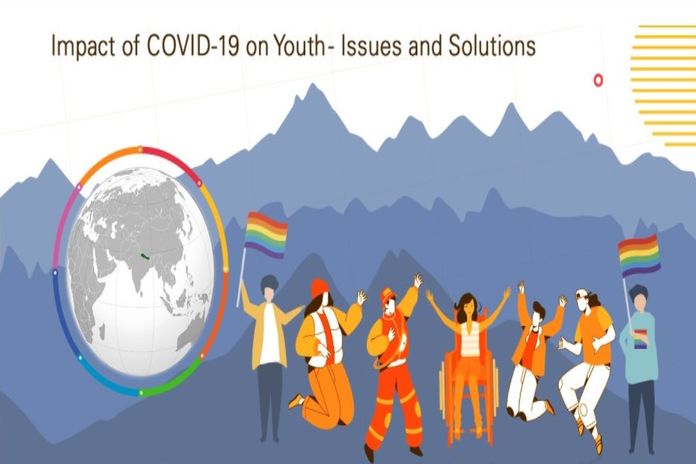By Caribbean News Global ![]()
NEPAL, India – On 5 September, Youth Advocacy Nepal, in partnership with UNESCO, UNV, and ActionAid Nepal, organized a South Asian Youth Summit on the impact of COVID-19 on youth. Young speakers from seven South Asian countries – Afghanistan, Bangladesh, Bhutan, India, Nepal, Pakistan and Sri Lanka – shared about the impact this pandemic has had on youth, the issues they are facing, and their perspectives. About 200 young people from South Asian countries attended the summit.

The unprecedented global COVID-19 pandemic has impacted youth tremendously. They are amongst the most vulnerable to its effects, with many at risk of being left behind at this crucial stage of their life development.
Shalina Miah, regional manager of Asia Pacific UNV, in her keynote speech, pointed out how the pandemic has undermined the progress in sustainable development goals. “In South Asia, all countries are affected by the pandemic, some more than the others. Youth are among the most severely affected by this crisis,” she said. She urged youth organizations and community groups along with the governments to play a crucial role to provide the required support. “Volunteering is critical to empower youth by creating opportunities,” she added.
Youth are experiencing a lot of stress, not just because their education and careers are disrupted but also because there is a feeling of helplessness as they are not able to reach out as before. The young speakers shared how this pandemic has impacted youth in their respective countries, as well as positive stories of youth engagement and the ways they have addressed these issues. Young people have used this period to work on their creativity and skills, creating more opportunities for networking – particularly online, which has become a crucial platform for gaining emotional and mental support – as well as fundraising and charity.
During the lockdown, gender-based violence and sexual abuse are also occurring, and those with disabilities and young queer people are prone to exploitation. In many countries, homosexuality is criminalized and most individuals belonging to the LGBTIQ community thus sense the loss of security and support. They are out of work, out of touch with their friends, and unable to access medication.
The summit screened a motivational video of a visually impaired youth, Shristi K.C., founder of Blink Rocks. In the video, she shared her adventures, advocacy, and stigmas around disability and how challenges can be overcome. She emphasised the need for a new normal post-COVID, one that accepts differences and celebrates diversity.
“Youth are at the end phase of their education and the starting phase of their careers, but for their smooth transition towards informed adulthood, they need to be skilled and capacitated,” said Balaram Timalsina, chief of education unit in UNESCO Kathmandu office and special guest of the event. He urged all to ensure youths’ participation in the overall sphere, saying that no country can be democratic without the involvement of its youth. “No one shall be left behind, we must reach out to the most marginalized, disabled, and those in geographically remote locations and be inclusive; UNESCO always supports youth.”
Chief guest Madhav Dhungel, vice president of National Youth Council, Nepal, said that COVID-19 has added challenges in all spheres of life but this can still be seen as an opportunity. “In regards to the development of youth leadership, South Asian countries can learn from each other and refer to good practices,” he stressed. “The National Youth Council Nepal believes in a partnership culture and looks forward to networking and collective efforts to form inclusive governments that can empower youth. A global crisis requires global action,” he concluded.





